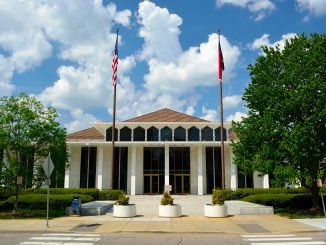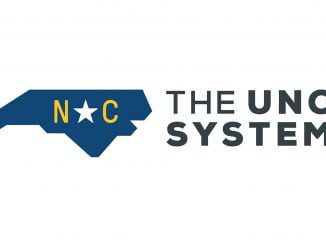
RALEIGH — During its Jan. 18 meeting, the UNC Board of Governors (BOG) Committee on University Governance a policy revision was on the agenda that would restrict “compelled speech” in admissions, employment, and professional advancement.
The proposed revision of “prohibition of compelled speech” falls under Policy 300.5.1 “Political Activities of Employees.” The revision seeks to “restrict vague or ideologically motivated statement policies of any kind across UNC campuses.”
“University shall neither solicit nor require an employee or applicant for academic admission or employment to affirmatively ascribe to or opine about beliefs, affiliations, ideals, or principles regarding matters of contemporary political debate or social action as a condition to admission, employment, or professional advancement,” the revision states. “Nor shall any employee or applicant be solicited or required to describe his or her actions in support of, or in opposition to, such beliefs, affiliations, ideals, or principles.”
The policy revision also bars “solicitations or requirements for statements of commitment to particular views on matters of contemporary political debate or social action contained on applications or qualifications for admission or employment.”
“We cannot condition employment or enrollment on adherence to any set of beliefs, no matter how well intended,” UNC System President Peter Hans said during the committee meeting. “There’s a long list of good and worthy ideas we could require people to hold. That’s not the role of the university.”
Hans continued, “If we require students and employees to conform to a prescribed set of beliefs, that simply isn’t true to our tradition of free minds, free speech, free thought. Legally, intellectually, morally — it’s our responsibility to protect students, faculty and staff from compelled speech.”
Nothing in the proposed policy revision prohibits a student or prospective employee to “voluntarily opine” on a given topic or a belief they may hold.
Without naming specific instances where compelled speech comes into play, the policy revision appears to be an attempt to address Diversity Equity and Inclusion (DEI) statements which force a candidate for admission, employment or advancement to espouse an allegiance to specific political, social, and racial justice causes.
The background information for the policy revision cites issues with both the state and U.S. Constitution’s First Amendment tied to requiring an employee, a potential employee, or an applicant for academic admission to “demonstrate their commitment to certain ideals, missions, political issues, or principles.”
“Forms of compelled speech, when required under University policies, rules, and regulations, could further function as litmus tests for adherence to prevailing socio-political views on various matters of contemporary political debate,” the background text for the revision says. “The University System seeks to prevent this form of compelled speech.”
While DEI statement requirements have not been seen yet in UNC undergraduate admissions policies, such statements are present at the UNC School of Medicine as documented in 2021 by the James G. Martin Center.
“I’m excited to see the UNC System considering this policy. It is a welcome addition to its past commitments to free expression,” James G. Martin Center President Jenna Robinson said in an email to North State Journal. “This policy will help to ensure that faculty and students are evaluated on their merits instead of their ideological commitments. I believe it will be a model for institutions around the country.”
Robinson also noted that the UNC System is the first state university system to consider a policy like this and that “UNC has positioned itself to be a leader on this issue.”
The committee’s agenda attributes the revision to UNCBOG General Counsel Andrew Tripp. During the committee’s meeting, Tripp said the draft was formed after soliciting feedback from “all over the country and North Carolina.”
The university governance committee voted in favor of the proposed revision to be sent to the full BOG for a possible vote at its upcoming meeting being held on Feb. 22-23. The public will have the chance to offer comments at that meeting.


